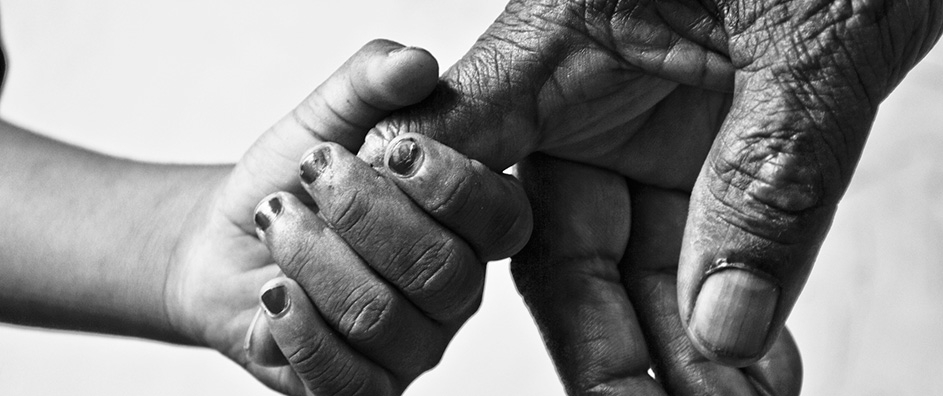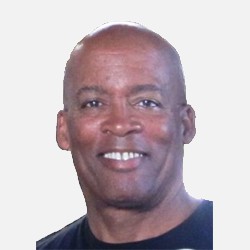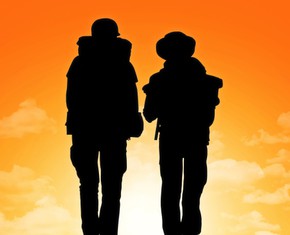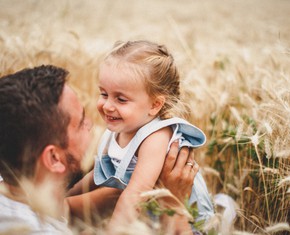The views expressed in our content reflect individual perspectives and do not represent the authoritative views of the Baha'i Faith.
The passing of the father is an admonition for the son, and it reminds him that he, too, must pass away. – Abdu’l-Baha, Star of the West, Volume 2, p. 11.
Visiting a friend for the weekend, I found a copy of Equal Circles: Women and Men in the Baha’i Community, and turned to the essay I wrote for that book thirty years ago.
As if hearing the voice of my youth, I read “Becoming a Man” from beginning to end that early morning, curious, captivated, and surprising myself by feeling especially moved by its closing paragraph:
I want to go to my father and say, “Dad, you hurt me. I love you.” But somehow I can’t yet. I fear that in some way he will let me know once more that I have not measured up, that I am not man enough to suffer and love in silence. As I watch his body wither as cancer eats his lungs, I know that I cannot wait forever to face this fear—a fear unmatched even by the terror of jungle nights. But I am hopeful; recently he spoke to me about his childhood for the very first time, and I recognized that he had his own hurts. In his way, he was trying to reach out to me, and I think that soon we will acknowledge our brotherhood. We are both afraid of rejection. We are all afraid.
I did not know when I wrote this that soon my father would be gone, dying at seventy, felled by the cigarettes he smoked constantly. But I sensed that the end was near, and without calling or checking with his doctor, I went to the hospital on the night of September 30, 1987. My father was in bed on his back, his eyes open and wide with that intensity that could sear the strongest resolve in others. He couldn’t speak. “Too weak,” said the nurse. Leaning over him, I said what I had to say, the words I had never uttered before, “Dad, I love you.” He smiled thinly, but the smile was unmistakable, a smile of gratitude, appreciation, and reciprocity. I finally knew: he loved me too.
The next day the hospital called. My father had died. I wasn’t told the exact time of his death, but I was grateful, and remain grateful, that I had listened to the impulses of my heart. I had feared his disdain for weakness and displays of emotion, but I finally said what for so long I wanted to say and couldn’t. Later I gave the eulogy, requested by my siblings, without regret or resentment. I grieved, for he was still too young to pass away, but I was relieved for him because he had never recovered from the sudden death of my mother two years before; his depression had withered his body before the ravages of cancer. He never expected to outlive her.

The eulogy also forced me to confront an essential truth: I loved but didn’t really know my father. His past was essentially a mystery, and details were sketchy. I had to ask about the name of his birthplace; the name of his mother who died young. A man of few words, he shared little.
Nevertheless, I had vivid memories. A man of long silences, taciturn, almost sullen, he was handsome with a dimpled smile and expressive eyes that enhanced every portrait of him, especially those taken when he was in the Army during World War II. Dashing in uniform or civilian jackets and suits, he attracted loyal friends who shared his love of jazz, dancing, drinking, and smoking. My father, a sophisticated New Yorker who had escaped rural Oklahoma and gone north like so many black men of his generation, once cut a fine figure, I realized.
Everyone acknowledged, including his friends during whispered asides in conversations in our New York apartment, that he was not a man to cross, a long simmering volcano whose eruptions were devastating. That’s probably why it didn’t surprise me when my father stopped the minister’s sermon at my grandfather’s funeral. The minister began preaching about the “wages of sin.” Standing up and shouting for all to hear, my father declared, “I’ll be damned if you’re going to make an example of my father at his own damn funeral!”
Needless to say, when we misbehaved my mother only had to ask, “Do you want me to get your father?” for us to capitulate to her demands. He adored my mother, a childhood sweetheart, and she was not afraid of him, speaking her mind at every opportunity with a flashing wit that challenged and disarmed at the same time.
I never thought of my father as a particularly spiritual man, but I understand now, long after his passing, that he taught me the spiritual values I value the most.
Next: Be a Son of the Spiritual Part of Man
















Comments
Sign in or create an account
Continue with Googleor